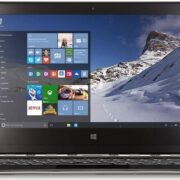
Chromebooks are a great alternative for those who aren’t keen on computers or just want a simpler way to use a PC. Chromebooks don’t require traditional installation of applications; instead, they have Google’s Chrome Web Store, where you can browse through the multitude of apps available and install them in seconds.
Chromebooks are solid pieces of gear. They’re not nearly as feature-heavy as Apple’s Macbooks, and they lack the versatility of Microsoft’s Windows laptops, yet they’re pretty good at what they do.
What is a Chromebook?
The term “Chromebook” is used to refer to small, thin laptops with Chrome OS pre-installed. Google Chrome OS is a fast-growing technology that is gaining momentum with each passing day. This means that there are plenty of pros and cons to choosing the Chrome operating system over another OS.
This includes some schools that are considering using the device for their classroom computing needs.
Major characteristics
Chromebook screens range from 10.1 to 14 inches, with many models having 11.6 to 12.1 inches.
The OS is based on the Linux kernel.
Applications in it run through the browser Chrome.
The laptop’s performance in comparison with other thin models is low: Atom and Celeron, Core i3-7, and Haswell processors from Intel, ARM Cortex, Rockchip, and Samsung Exynos operate at 0.9-2.4 GHz.
The RAM capacity of Chromebooks is 2-4 GB, and some models have 8–16 GB SSDs for a total of 16–64 GB of storage media.
Chromebooks have everything you need to work on the Internet (web surfing, social networking). Of course, you can work with office applications (text, tables, presentations, etc.), as well as any online office editor. Photos will be processed in the built-in image editor.
With modern Chromebooks, you can install applications from Google Play.
Chromebook Advantages
The biggest pro of using a Chromebook is portability. You can take the device wherever they need it most.
Use the Google laptop for work, research, and even online gaming. You can also share and collaborate on data, including written work, in Google Docs. For example, students can collaborate on essays, reports, etc.
Another big plus with using a Chromebook is the wide variety of software for the device. For example, Google has its Chrome browser and many other popular programs. These include Microsoft Word, Excel, PowerPoint, Outlook, Firefox, Safari, Chrome, etc.
One of the major reasons for using a Chromebook is its versatility. People of almost any age can use it. Besides, these devices are easy to set up and can be used by even those with little or no experience with computers.
Another big plus of using a Chromebook is that you can get access to an extensive library of e-books, videos, and other information that can be shared with others using Google Docs or a Cloud Drive.
With this resource, students can share and collaborate effortlessly on projects and research. Teachers will also be able to view their assignments and projects online. This allows them to take notes in real time.
Other Key Pros
Lightweight and compactThe small and lightweight laptop is a great option for frequent travel and study. It fits in your suitcase, purse, or backpack. Fast performanceChrome OS is blazing fast with modest hardware requirements, booting up in 7-10 seconds and coming out of sleep mode in 1 second. Using cloud storageExecutable files and documents created during work don’t fill up the built-in storage, so the user doesn’t have to clear disk space for the required program or data. To launch it, click on the application shortcut. Automatic software updatesNew versions of user and system software are downloaded and installed without user interaction in the background mode. Additionally, users can extend functionality by installing Android apps on the Chromebook in special containers.
|
SecurityChrome OS is not affected by viruses in the Windows environment. Long battery lifeDifferent models can function for 4 to 12 hours without plugging in. The average running time of a Chromebook is 6–9 hours, which is not found in all full-size laptops in other categories. Affordable pricesBuying a device will cost anywhere from $200-600 to $1,000-1600. More expensive than a thousand dollars are models with a large amount of RAM and a powerful processor.
|
Chromebook Disadvantages
The biggest con of using a Chromebook is that they are not as powerful as laptops. Besides, low performance does not allow you to play games or watch movies in high resolution (Full HD is supported only in some expensive models).
The device does not have as much storage space, memory, or speed as a laptop would. This means that you may have to use their Chromebook less and save it on a USB drive or external hard drive.
Web applications and files are on servers, so you need stable access to the Internet to work comfortably.
Connection to a Google account and services. You cannot use other storage services because this option is not provided.
You cannot install programs for the needs of professionals (IT professionals, designers, accountants, photographers, sound editors, video makers). This kind of software is resource-demanding and is not available as a version for Chrome OS.
Difficulties in working with the laptop with devices running other operating systems.
This is just a small list of the advantages and disadvantages of the Chrome OS. However, these pros and cons are enough to make you think about your situation when deciding whether to purchase a Chromebook. Additionally, if you are interested in learning more about this device, there is a wealth of information on the internet.
Resume
Lightweight and compact laptops for everyday tasks attract the attention of different buyers, so manufacturers are trying to reduce the size of devices without much loss in performance.
On the market, you can find both low-powered and small netbooks and ultra-slim, productive Ultrabooks. Chromebooks are in between these two categories of portable PCs.
- long periods of work without recharging,
- lightweight,
- relatively high performance (when compared to comparable Windows laptops),
- no viruses (so far),
- low cost.
The primary disadvantages of Chromebooks are:
- There is no such thing as Windows or Windows programs,
- it strongly recommends a constant internet connection,
- insufficient storage space for your files.



